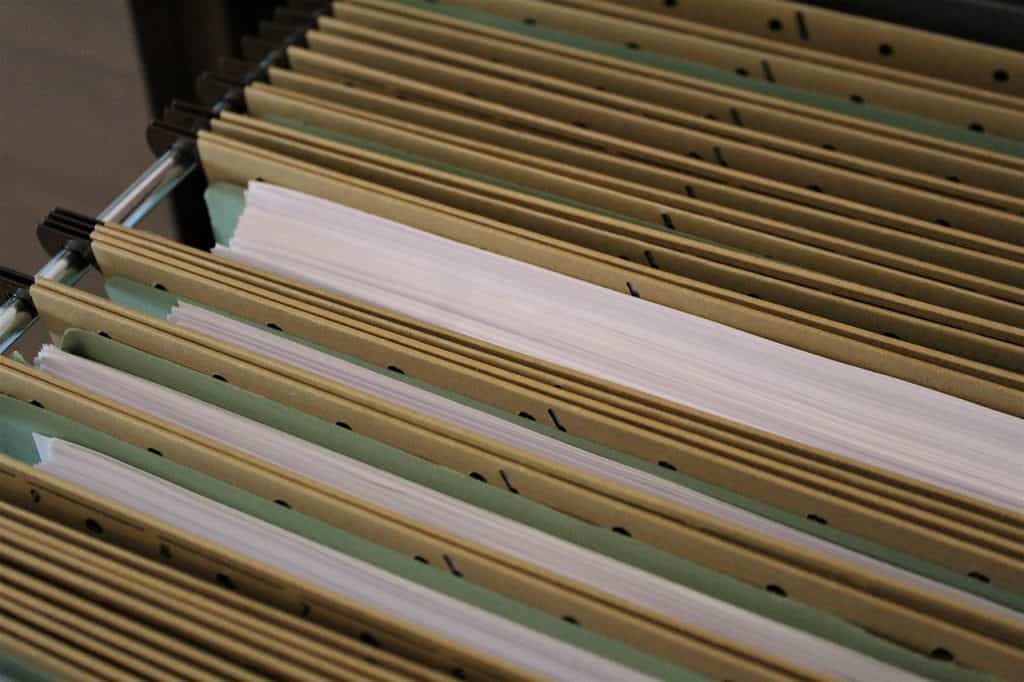
You know it’s important to hang on to your tax returns, receipts, and financial paperwork, but you also know there has to be a point when you can finally clean out your file cabinet. Is it safe to go ahead and throw out the tax returns from 2012 or should you keep them for a few more years? And what about loan documents and purchase confirmations of stocks and bonds?
Before you grab your paper shredder, our CPAs in Raleigh have put together a brief guide that outlines how long you should hang onto both personal and business tax and financial records.
How Long to Keep Personal Tax and Financial Documents?
The general guideline of hanging onto tax returns and other documents is the period of limitation. This phrase simply means the period of time in which action can be taken. It’s typically reserved for tax returns, in that you have a period of time in which you can amend your returns to claim a credit or the IRS can take action against you. However, nearly any financial document has a period of limitation, in that loan paperwork is not necessarily needed once the loan is paid off or receipts are no longer needed when you’ve used them on your tax return.
Using the period of limitations as a guide, follow these guidelines for hanging on to personal taxes and financial documents.
Tax Returns and Documents – Seven Years
If the IRS suspects you made a “good faith” error, or just a simple mistake on your tax returns, they have three years after you file to audit that return. However, if they suspect you underreported your gross income by 25 percent or more, they have six years to audit that return. Hanging onto your tax return for seven years gives you proper coverage.
Also, this includes supporting tax documents, such as receipts for donations, student loan interest paperwork, and retirement contributions. Anything that you used to complete your tax return, whether for income or deductions, you’ll want to hang onto for the seven year time.
Legal Documents – Forever
You know you should always hang onto birth certificates and adoption paperwork, as well as marriage and divorce certificates and wills just in case you need information for school enrollments, driver’s license updates, and insurance.
In addition to these, you’ll also want to keep record of any property records that are paid off. Titles, deeds of trusts, and satisfaction notes may be necessary in the event there is a mistake from a lender or tax assessor’s office. This is especially likely to happen during the transfer or sale of property. Once you no longer have the property, you can get rid of any paperwork associated to it after three years.
Financial Records for Active Accounts
If you have any active accounts or contracts, you’ll want to hang onto records of these for as long as the account is active. This is very broad and could include records and receipts related to:
- Receipts for items still within their return and refund date;
- Records for warranty information;
- Ongoing debt payment, such as car loans and student loans;
- Property tax records as long as you own the home;
- Equity and stock records of stock you hold;
- Contracts;
- Insurance information.
The exception to this is bank and utility statements. Canceled checks, paycheck stubs, and bill payments can be shredded after one year.
Financial Records for Finalized Accounts – Three Years
You may need to provide proof of payment or resolve a claim long after you finished paying off a debt or have finalized the claim. To have the information you need, make sure you hang onto:
- Canceled insurance;
- Property sales records;
- Receipts for medical bill payments;
How Long to Keep Business Tax and Financial Documents?
If you own a business, it’s just as important to maintain the records related to business tax preparation for the proper amount of time.
Tax Records for Your Business – Seven Years
Just like your personal documents, you’ll want to hang on to your tax records for your business for seven years. This is especially true if you have deductions for debt loss or bad checks.
Financial Records – Seven Years
While you don’t need to maintain every single monthly bank statement or profit and loss sheet, it’s a good idea to maintain a detailed yearly record of pertinent information in your monthly statements.
Employment Records – Up to 10 Years
If you have employees at your business, whether they are full or part-time, or you have worked with 1099 independent contractors, you will want to keep the tax documents (I-9s, W-4s, etc) for at least four years after any payments have been made or taxes filed. In general, any employment records should be maintained for this period also. The one exception is records related to Workers’ Compensation which should be held for 10 years.
Schedule a Consultation with a CPA
If you need assistance keeping up with your financial records or are in need of a CPA who can provide auditing and financial statement preparation, we can help. We serve Raleigh, Durham, Cary, Wake Forest, Wilson, and surrounding areas. Reach out to us today at (919) 872-0866 or fill out our form below to schedule a consultation.
